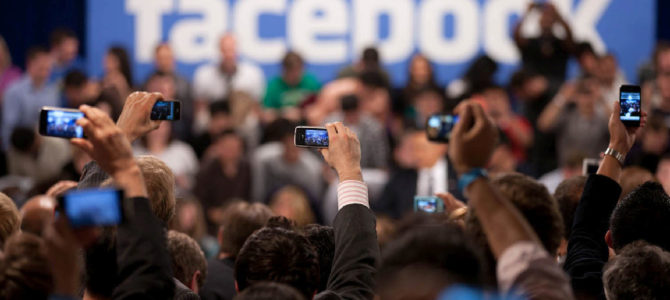
You might think it strange, even contradictory, that the infamous book about the importance of written thought was adapted to film — twice. “Fahrenheit 451” first hit the silver screen in 1966. Over 50 years later, HBO has remade the famous dystopia with expensive effects and a renovated plot.
Is it any good? No, and yes. Critics have every reason to pounce on its flaws due to the book’s status as a pillar of dystopian critique, along with “1984” and “Brave New World.” In one sense, there’s no way to make a film as great as a truly great, widely read novel. But in another sense, it is better than the book — essentially because the book had substantial room for improvement besides the technological updates.
In judging the film, one must start with the admission that Bradbury’s book stands apart from other novels because of its message, not its clever plot or deeply interesting character development. Even back in 1953, he saw how television would revolutionize the world — a revolution of shallow entertainment to fill our time, nationwide and at first an inch deep, but filling up until society happily, dreamily collapses under the weight. His prediction of immersive entertainment — entire rooms made of screens from wall to floor — was as close to a picture of virtual reality as one might expect from a mid-20th Century novelist.
But more importantly, of course, he realized the significance of what we were in danger of losing: Human knowledge, diversity of thought, and the power to act on those thoughts. The monologues peppered throughout the novel drive home the power of the written word to sway minds, gain followers, and start revolutions.
The power to bring joy, but also to make people deeply unhappy. And he realized, as did Aldous Huxley, that modern government tilts dangerously close to making it their business to ensure the people’s happiness rather than preserve their freedom — and still more critically, that the two were fundamentally at odds with one another. When the people stop reading and exposing themselves to a variety of facts, beliefs, and facets of human experience, diversity of thought is jeopardized. When everyone largely believes the same things, it’s easier to quash minority views and ask the government, charged with the people’s happiness, to extinguish the uncomfortable views altogether.
Adaptations always suffer by nature of being second, of merely being an echo chamber for the original ideas. You cannot adapt a keenly insightful and prescient book like Fahrenheit 451 and expect accolades from the critics, or, for that matter, the masses. The bell was already rung half a century ago and the sound is still reverberating, albeit weakly, through dim recollections of high school and college class discussions. What makes Ramin Bahrani, the film’s director, or HBO think they can ring it again in any meaningful way, or even attract a decent number of viewers?
The answer, I believe, is that as a novel, “Fahrenheit 451” was not very good. Its main weakness was in how flat and uninteresting the characters were. Not only was Montag (the main character) a boring, robotic personality that no one would ever want to bring to a dinner party or even watch from across the street, but his wife, Mildred, was insufferable. Of course, she had both an illustrative purpose in showing how much misery constant media immersion can generate and a mechanical purpose to further the plot by ratting out her husband. Still, she’s a character a producer might think twice before bringing to the screen, if he could avoid it.
The simplicity of the plot was the novel’s other weakness. There was betrayal, and there was death, but both were emotionally very minor. In Bradbury’s original tale, Clarisse was just there to further the plot, like Mildred. She’s a teenager who dies in a car crash early in the story, and it is not clear at all that Montag has fallen in love with her. Her death is sad, but not tragic. Mildred’s betrayal was annoying more than infuriating, since Montag clearly didn’t love her, and she hadn’t ever loved him. And the book ends with him evading capture, after killing his fire captain, and walking off into the distance as a new member of a group that memorizes books. The only really interesting bits are the escape and the monologues about how society came to reject the written word.
Bahrani’s film is better than the book in the sense that it isn’t just an adaptation, it’s a reimagining of both the characters and the plot. He is not so much retelling “Fahrenheit 451” so much as borrowing heavily from Bradbury’s work to create his own story. Montag (Michael B. Jordan, of Creed and Black Panther fame) is not the dull dinner guest, he’s a zealot for the book burning cause, getting the firemen wound up with chants and songs about their task. “D-mn, it’s a pleasure to burn!” he declares as he shoulders his hefty flame thrower at the burn site. Little emojis float up along the sides of all the surrounding buildings as he speaks — all the department burns are broadcasted and he’s a celebrity on social media.
He’s single, too. Mildred is left out of the film completely. Clarisse, who does become his love interest, doesn’t die in a car crash — she’s a conflicted young woman who ran away from her family of “eels” (what everyone calls the social outcasts who have been locked out of the internet, what they call “the 9,” as punishment for reading or promoting contraband). She now survives by dealing in “graffiti,” or forbidden books.
Captain Beatty, played by Michael Shannon, who was arguably the most intriguing character in the book for his monologues, is even more interesting. His inner conflict is a highlight of the film. Instead of simply being the vehicle through which the storyteller can opine, his urge to think for himself and his loyalty to the cause battle for control of his behavior.
He quotes from books and speaks favorably of Franz Kafka, encouraging Montag to take a peek inside the book, but in the next breath calls all books “insanity.” At home, when his Yuxie (a futuristic Alexa who really does spy on a home’s occupants) is shut down and covered up, he removes a pen from a safe and scratches out his reflections on gum wrappers, only to burn them afterward. If one hadn’t read the book, he might think Beatty would defect and come around to supporting the eels with Montag.
The film makes a major departure from the book’s storyline about halfway through, and it’s an improvement from the book — one that might keep a fan of the book interested in what happens next. Without spoiling it, suffice it to say Bahrani did a solid job updating the plot based on current scientific trajectories, while adding a thin layer of mystery by hinting at it early on. It’s not anywhere close to “Ex Machina” level of interesting; in fact, it’s more a plot device than a point to explore, but it’s scifi for today, not 1953.
The point I will spoil, which is how the book should have ended, in my opinion, is that Montag doesn’t kill Beatty. Beatty kills Montag, right after he gives the revolution a fighting chance.
While the plot is a little meatier than Bradbury’s narrative, it doesn’t sacrifice the message of the book. One might complain that the technology is too much of a focal point, so obviously similar to our present day technoworld that it’s distracting from the core message that books and diversity of thought are precious, so that all we see is a critique of our immersion in social media and the threat of technocratic surveillance. That would be a misreading of Bradbury’s point, however.
His point was not just that books are important, but that the flood of shallow media that engulfs us everyday keeps us distracted and at least superficially content, so that, if given enough time for propaganda to work and for generations to grow up without ever picking up a book or an article and reading a complex, coherent thought about the world, we would not mind when our freedom of thought is restricted. In fact, we would celebrate our equality. “We were not born equal,” Beatty says, “so we must be made equal by the fire. And then, we can be happy … your grandchildren will not even understand what a book is.”
Bahrani cleverly augments this threat with the fact that we’d actively cheer it on, as indoctrinated peoples always do.
Some lines of dialogue do speak directly to our time. Beatty tells us that because “there were so many millions of opinions, our country slid into the Second Civil War.” After an incredibly divisive election almost two years ago, in a country that’s still deeply divided ideologically and culturally, this feels like it’s written for us. But it merely furthers Bradbury’s understanding of the power of free thought, and fifty years from now, it will still feel relevant.
The addition of Yuxie is merely one of plausibility: of course a government would use such a device to keep the people in line.
This movie, while not strictly an adaptation, isn’t a shoot-em-up, or a mystery, or a love story, either. It remains a less-exciting story laid over a more interesting dystopia. The dread of a world without books is still what hooks you, and the passages quoted are all the more interesting for it. The singing, curling pages of classic books are the backdrop for the opening credits and make regular appearances throughout the film. The book Montag steals is “Notes from Underground,” by Fyodor Dostoyevsky, which he and Clarisse read aloud — the excitement of rebellion in tasting forbidden knowledge, in thinking for oneself, is still what keeps you engaged.
Is it a good movie, in its own right? The directing is solid, and so is the acting. But at the end of the day, it’s still grounded in Bradbury’s work and one can only venture so far from the initial narrative before being accused of cannibalizing part of the dystopian literary canon. It will always be compared to Bradbury’s novel, so I will leave you with the opinion that it’s better than the book, and it’s worth watching, especially if you haven’t read the classic.









